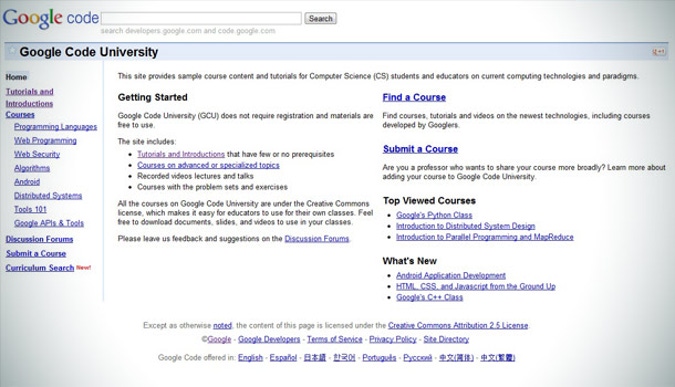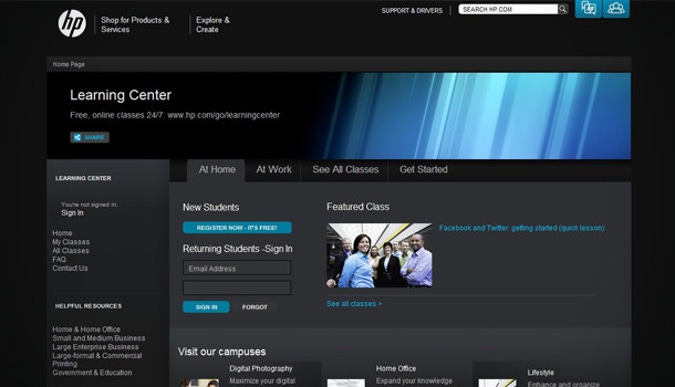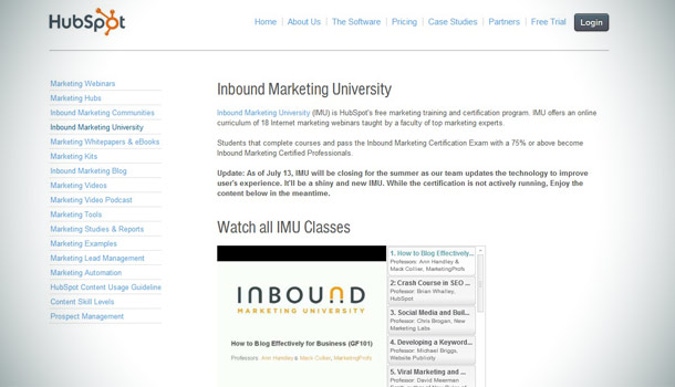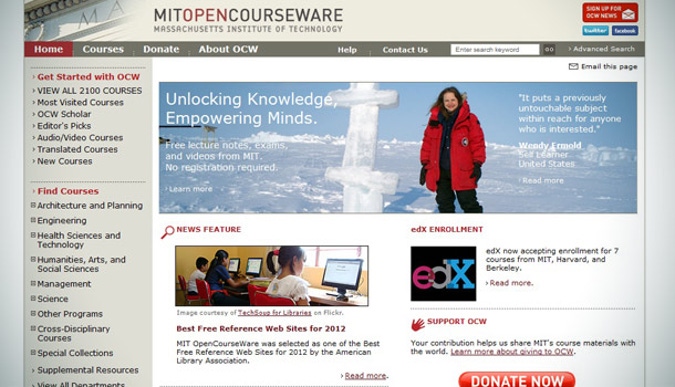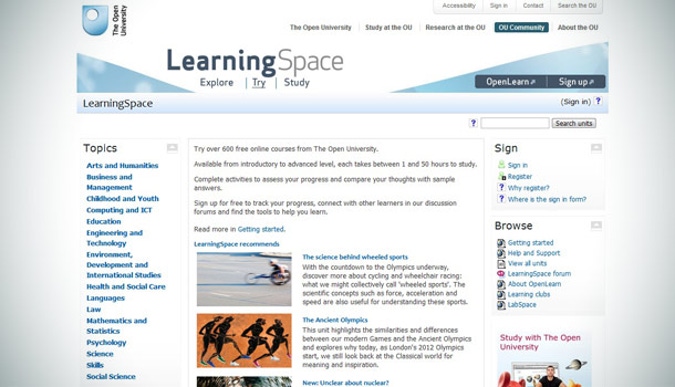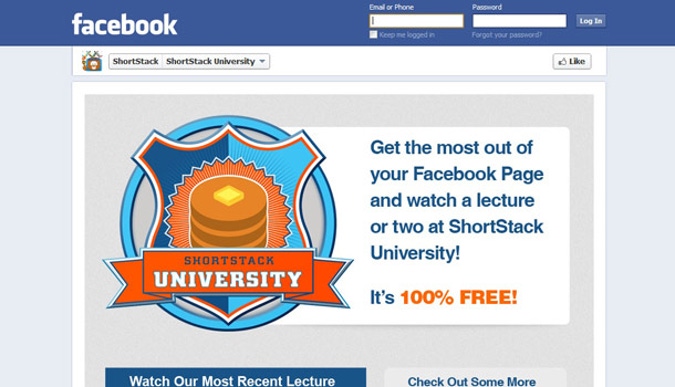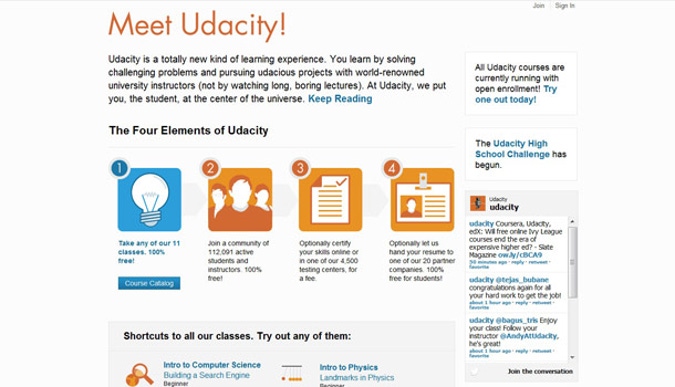10 Free Online Resources for Business Tech
Opinions expressed by Entrepreneur contributors are their own.
You might have a degree on the wall, years of experience on your resume and maybe even a shiny plaque on your office door. But you may still not have what you need to survive in today’s tech-centric economy. The internet has always promised to be the future of business, and the future is now, bringing with it a need for coding smarts, online marketing savvy and general technical know-how.
Most business owners don’t have the time to go back to school to earn a degree in computer science, but they can get many of the skills they need in technology from free, online resources. Here are 10 to consider: Some are as good as Ivy League courses, and they all provide solid professional expertise.
Code Academy
Best for: Basic computer programming
Chicago-based Code Academy, which was started in April 2011, forgoes lectures and tutorials and offers short, interactive lessons in basic programming. The hands-on exercises include a Web terminal window, where users key in prompted information so they can see the concepts in action.
Users can participate in one of four content tracks or try their hand at other non-track content. Featuring the basics of web programming, such as HTML, JavaScript and CSS, the site lets users track their progress with friends and earn badges and other awards. The site also keeps track of how many consecutive days you’ve worked on the courses, encouraging users to stick with the program by building streaks.
But the fact that you’re creating actual applications may be the most fun. For example, the first milestone in the Javascript Fundamentals course is building your own blackjack game.
Related: Simple Ways Around Tough Tech Challenges
Google Code University
Best for: Higher-level web programming
Aimed at everyone from new programmers to webmasters, Google Code Universityis a portal on the Mountain View, Calif.-based search engine’s website that dates back to 2008 and covers a wide range of topics from Android to Web security. The site provides sample computer science content submitted by professors, including lecture videos and problem sets and exercises.
Broken down into two categories, the site is easy to navigate. Tutorials and Introductions, the first category, covers the basics of Web programming, databases, programming languages and the Linux operating system. The second category, Courses, digs in deeper, providing lessons on algorithms from Princeton University and Stanford University and on Google application programming interfaces (APIs) and tools developed by the search engine.
Related: Do You Really Need to Code?
HP Learning Center
Best for: Home office technology
While it may not be as dynamic as other online tech resources, the HP Learning Center has been around for more than 10 years, and can be useful for entrepreneurs who don’t have coworkers to turn to for help. The PC-centered classes cover such topics as basic troubleshooting and repair of laptops, and tips for printing better marketing materials in-house.
Palo Alto-based Hewlett-Packard’s curriculum is a bit of a hodgepodge, offering everything from insight on developing a marketing color scheme to guidelines for helping teens safely use the Web.
Inbound Marketing University
Best for: Online marketing
A free online marketing certification program, the Inbound Marketing Universityis geared toward professionals and aims to provide them with new skills to compete in the job market. Run by the makers of HubSpot online marketing analytics software, the university began in 2009 as an online community where marketers could brush up their skills for free and get certified in best practices.
Users can participate live with course instructors and ask questions about the topics and material. IMU typically offers a curriculum of 18 webinars taught by marketing experts. While the site takes summer sabbaticals, its classes are always available for viewing through embedded videos. Covering topics such as blogging, social media, keywords and search engine optimization, the lectures are accompanied by PowerPoint slides.
iTunes U
Best for: iOS programming
Apple Inc.’s free education enterprise, iTunes U, is available to anyone with an up-to-date iOS device. Melding course notes, videos and instructional materials, the program was first introduced in 2007, and a 2012 update put the program on iPhones, iPads and iPod Touches. Some of the courses link to material available for purchase in the iBook Store, which makes for a particularly authentic experience.
While iTunes U boasts a broad catalog of topics, the engineering section is chock full of favorably reviewed tech offerings. Searching for “app development” pulls up lessons on building Apple apps. Programming experts at Stanford and Carnegie Mellon University mix videos with lecture slides to give students an immersive classroom experience in the palm of their hand.
MIT Open Courseware
Best for: Anthing tech-related
Offering both graduate and undergraduate classes, MIT Open Courseware is like enrolling at the Ivy League college, only for free. You won’t get a degree when you’re done, but you do get a top-notch education from some of the brightest minds in the world.
Covering a range of topics from architecture to management since 2002, the Cambridge, Mass.-based classes may be accompanied by audio and video, and some are available in several languages. “Introduction to Computer Science and Programming” is the most visited course, but other topics in the electrical engineering and computer science category dig deeper with analysis of artificial intelligence, instruction on C++ programming, and insight on user interface design and implementation.
The Open University’s Learning Space
Best for: Computing, information and communication technologies
Similar to MIT’s OpenCourseWare, the Open University’s Learning Space collects more than 600 free online courses on one website. But the distance learning institution, founded in 1969 and based in Milton Keynes, U.K., offers courses with a stronger international bent.
Ranging from introductory to advanced, the coursework can take up to 50 hours of study time for a single topic. The courses include exhaustive, expert looks at subjects such as electronic government operations, representing and manipulating data in computers, and enterprise software development. The network security course, which is highly rated among users, explains the finer points of firewalls and encryption.
Shortstack University
Best for: Facebook marketing
In an era of 140-character Twitter posts, long-winded lectures can sometimes be too much to take. Shortstack University capitalizes on shorter attention spans by posting a brief video every week that explains the basics of Facebook page management.
While Reno, Nev.-based Shortstack designs Facebook apps for agencies and small businesses, Shortstack University has been doling out tips free of charge since the start of 2012. Covering topics such as managing mobile pages, switching to timeline and handling administrative accounts, the sub-three minute videos are must-watch guides for businesses seeking a Facebook presence.
Related: Facebook’s Marketing Tools You Might Not Know About
TED
Best for: Technology, entertainment and design
Headquartered in New York, TED started in 1984 as a conference bringing together the worlds of technology, entertainment and design, and has received international acclaim in the years since. At its core, the nonprofit has managed to stick to its roots of covering “ideas worth spreading,” and its website features informative videos worth watching.
Talks are grouped by theme on the site page, and lectures are listed under “Tales of Innovation,” “Technology, History and Destiny,” and “What’s Next in Tech.”
Udacity: Web-building basics
While there’s no harm in taking a traditional class, interactive learning experiences such as Palo Alto, Calif.-based Udacity can help improve retention by putting students through real-life problem-solving scenarios. Since 2011, this free site has covered a range of technical topics, such as the principles of computer programming, building a search engine and data analytics.
Students solve challenging problems with the guidance of university instructors. For example, the “Web Application Engineering” course teaches how to build a blog. And by that it doesn’t mean write a blog. It means constructing the website framework that supports a web log. Any of the 11 classes are free, but for a fee, you can certify your skills online or at a testing center.
You might have a degree on the wall, years of experience on your resume and maybe even a shiny plaque on your office door. But you may still not have what you need to survive in today’s tech-centric economy. The internet has always promised to be the future of business, and the future is now, bringing with it a need for coding smarts, online marketing savvy and general technical know-how.
Most business owners don’t have the time to go back to school to earn a degree in computer science, but they can get many of the skills they need in technology from free, online resources. Here are 10 to consider: Some are as good as Ivy League courses, and they all provide solid professional expertise.

